Submarine eruption at Kavachi volcano, Solomon Islands
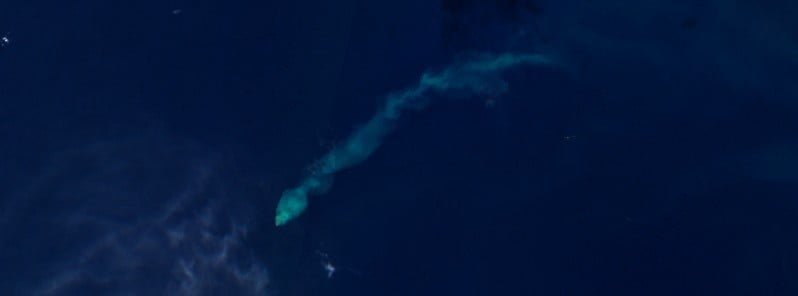
Submarine eruption continues at Kavachi volcano in the Solomon Islands since it entered the current eruptive phase in October 2021.
On most cloud-free days over the past two months, satellites have been detecting discolored water around the volcano.
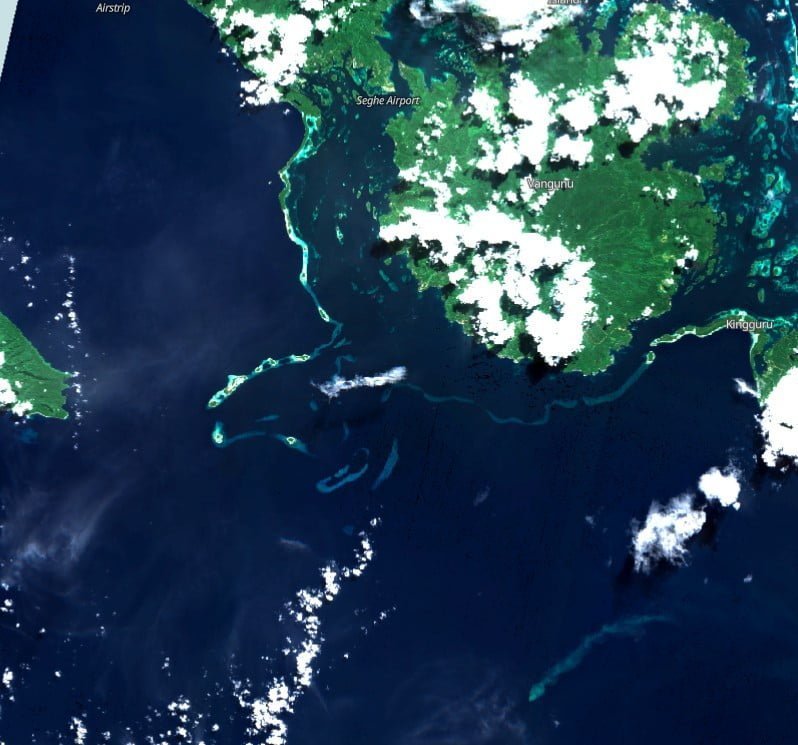
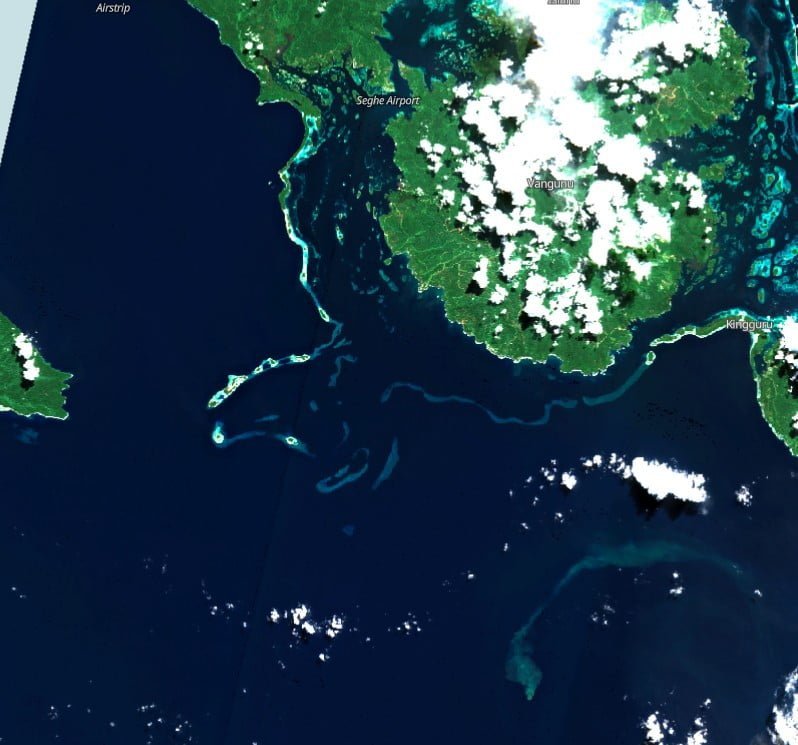
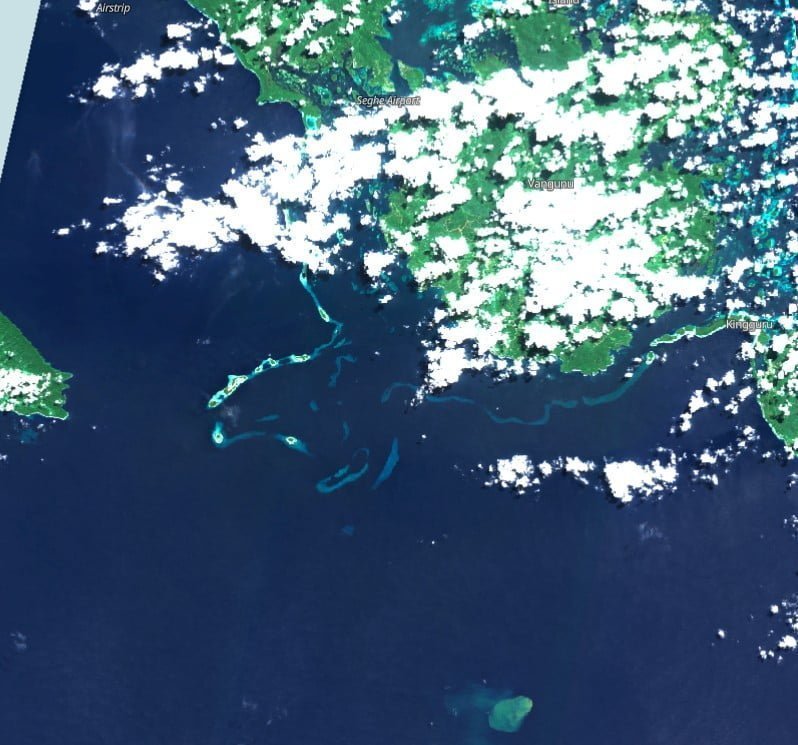
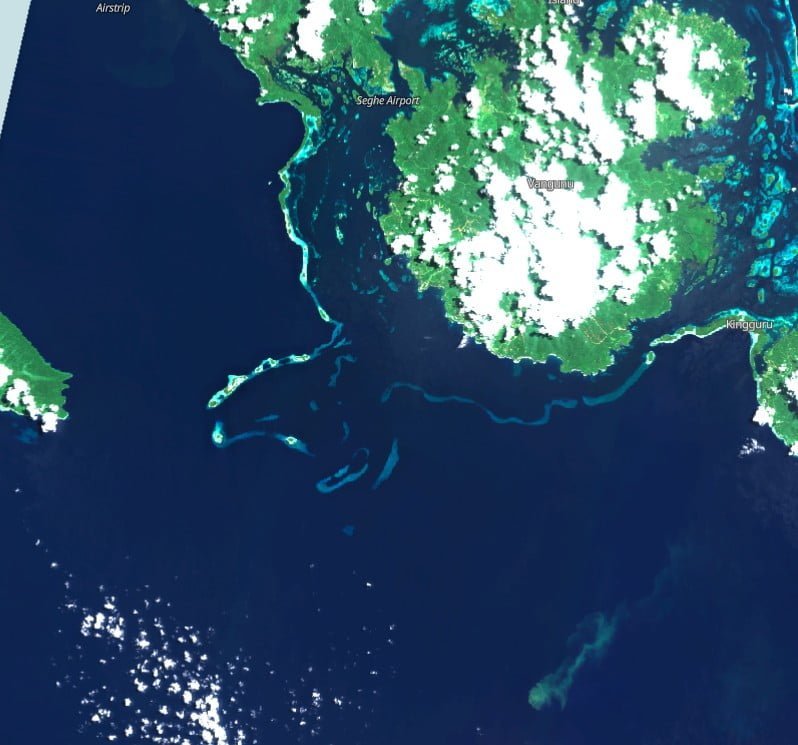
This volcano erupts nearly continuously, and residents of nearby inhabited islands often report visible steam and ash.
Research has shown plumes of superheated, acidic water usually – such as seen on the satellite imagery, contain particulate matter, volcanic rock fragments, and sulfur.1
In 2015, a scientific expedition to the volcano found two species of sharks, including hammerheads, living in the submerged crater, gelatinous animals, and small fish, raising new questions about the ecology of active submarine volcanoes and the extreme environments in which large marine animals can exist.2
The expedition was serendipitously timed with a rare lull in volcanic activity that permitted access to the inside of Kavachi’s active crater and its flanks.
Large eruptions at the volcano were detected in 2014 and 2007.
Geological summary
Named for a sea-god of the Gatokae and Vangunu peoples, Kavachi is one of the most active submarine volcanoes in the SW Pacific, located in the Solomon Islands south of Vangunu Island.
Sometimes referred to as Rejo te Kvachi (“Kavachi’s Oven”), this shallow submarine basaltic-to-andesitic volcano has produced ephemeral islands up to 1 km (0.6 miles) long many times since its first recorded eruption during 1939.
Residents of the nearby islands of Vanguna and Nggatokae (Gatokae) reported “fire on the water” prior to 1939, a possible reference to earlier eruptions.
The roughly conical edifice rises from water depths of 1.1 – 1.2 km (0.7 – on the north and greater depths to the SE.
Frequent shallow submarine and occasional subaerial eruptions produce phreatomagmatic explosions that eject steam, ash, and incandescent bombs. On a number of occasions, lava flows were observed on the ephemeral islands.3
References:
1 “Eruption-fed particle plumes and volcaniclastic deposits at a submarine volcano: NW Rota-1, Mariana Arc” – Sharon L. Walker et al. – AGU Solid Earth – August 2008 – https://doi.org/10.1029/2007JB005441
2 Exploring the “Sharkcano”: Biogeochemical Observations of the Kavachi Submarine Volcano (Solomon Islands) – Brennan T. Phillips et al. – Oceanography – October 7, 2022 – https://doi.org/10.5670/oceanog.2016.85
3 Kavachi – Geological summary – GVP
Featured image: Discolored water above Kavachi volcano on June 9, 2022. Credit: Copernicus EU/Sentinel-2, The Watchers

Commenting rules and guidelines
We value the thoughts and opinions of our readers and welcome healthy discussions on our website. In order to maintain a respectful and positive community, we ask that all commenters follow these rules.